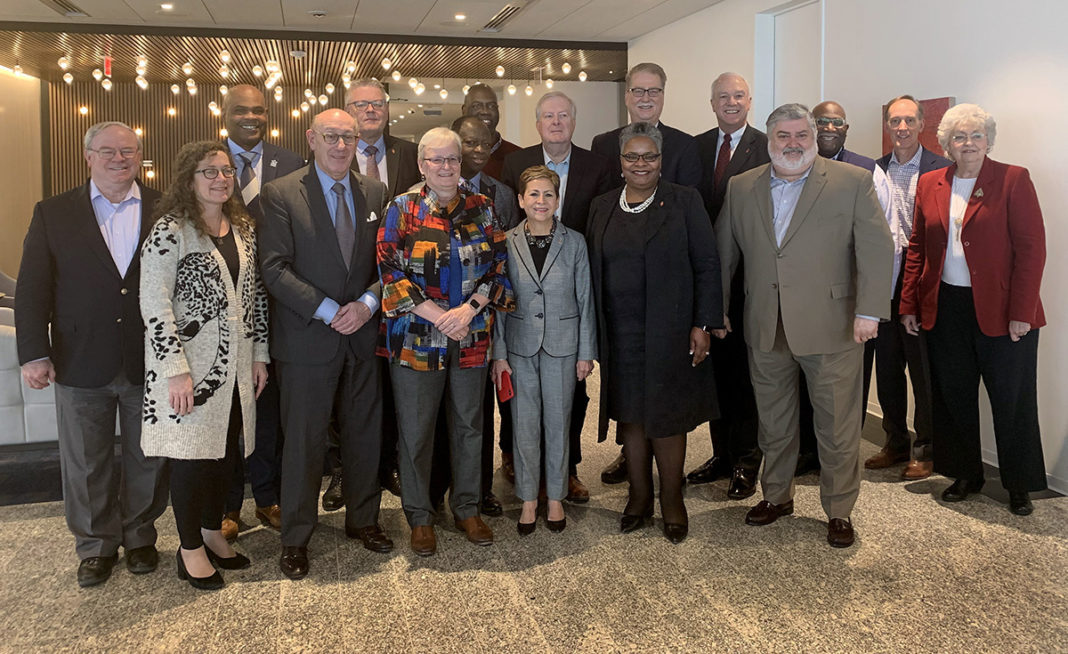We Eat What We Speak
Think about your words today, Team!
Have you ever heard the old cliché, “Sticks and stones may break my bones, but words will never hurt me?” I’ve not only heard it, but I also use to say it all the time as a child, a teenager, and an adult until I learned differently. I was loud and wrong all those years, but thank God for His Word which corrects our wrong thinking.
Proverbs 18:21 says, “Death and life are in the power of the tongue and they that love it shall eat the fruit thereof.” What does that mean? It means when you speak positive words, you will have what you say; when you speak negative words, you will have what you say. The Bible says you will eat that fruit – you love your words so much that you will see your words manifest.
Words Have Power
Look at your life. What have you manifested? No matter what it is, positive or negative, please recognize your power.
Now I must ask, what have you been eating?
Have you been saying things like: Life is hard, I am broke, I cannot do this, I hate my job, I am so sick, etc. What about in relationships – do you say things like: My spouse is no good, my children act so stupid, I will never find a good man or a good woman, my friends make me sick, etc.
Sidebar: If they are your friends and they are making you sick, why are they your friends, just asking?
Do you say things like: I cannot imagine owning that, I cannot imagine paying that much for that, I cannot imagine…
Another sidebar: If you never imagine, you will never have that experience.
If your words are full of what you do not have and what you hate, all you will see is more of what you do not have and what you hate. You will eat that fruit and as you are eating, emotions like envy, strife, and jealousy will soon begin to creep in. You will find yourself blaming others for your negative experiences.
Words Come to Life, You Will Have What You Say
 Seeds are constantly giving birth, and whatever is planted brings forth harvest. So, if you are focusing on the negative, and speaking negatively – before you know it not many people will want to be around you. You will be that person that others say, “Talking to him or her is so draining“. You will eventually become depressed, and your extremely powerful mind and mouth will be the reason for your misery.
Seeds are constantly giving birth, and whatever is planted brings forth harvest. So, if you are focusing on the negative, and speaking negatively – before you know it not many people will want to be around you. You will be that person that others say, “Talking to him or her is so draining“. You will eventually become depressed, and your extremely powerful mind and mouth will be the reason for your misery.
If your words are positive, you already know what to do – keep talking! The goal is to speak life and not death-filled words about your life. So, whether it’s manifest as true right now or not, try saying things like (repeat):
- I am beautiful!
- I am handsome.
- Wealth and riches are in my house because I fear the Lord (Psalm 112:3).
- I have the best husband!
- My wife is virtuous and amazing in every way.
- My children are awesome and will accomplish great things!
- I have great friends!
- I am healthy, blessed and prosperous!
- My house is blessed!
- Every need is met, and I lack no good thing.
- Every bill with my name on it has a zero balance, thank you Jesus!
- I owe no man anything but love, Romans 13:8!
- I have title deeds in my hand.
- I am a lender and not a borrower, and everything I put my hands to will be blessed, Deuteronomy 28:12.
- I have my building!
- All my relationships are healthy!
- I am in the best shape of my life!
- This is a great year for me and my family and every year after will be better.
I can go on and on about the power of our words and our diet because of them. Think about your words and say something different today.
So, what’s the play call?
Examine your life and take inventory of your words and adjust where needed.
Make a bold statement of apology to YOURSELF if you have damaged yourself with your words in any way.
Pause before you speak and monitor your self-talk from this moment.
What will you do differently?




